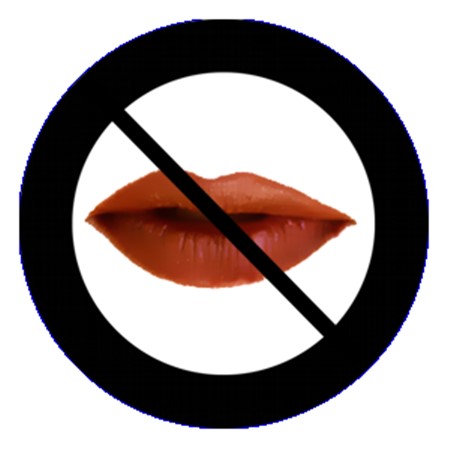Two proposed bills in the US have ruffled the feathers of most internet users in the US – SOPA (Stop Online Piracy Act) and PIPA (PROTECT IP Act). There are innumerable articles on this controversial topic, I will list just a few points from various articles. I have referred only to SOPA in this posting.

- SOPA would allow the U.S. Department of Justice, as well as copyright holders, to seek court orders against websites accused of enabling or facilitating copyright infringement. The court can direct advertising networks, payment facilitators (e.g. Paypal), search engines to stop working with the offending site (cutting off oxygen). A more legal+tougher version of Google Panda.
- It is said that entertainment companies are behind SOPA as they are losing money from online piracy (illegal music, video sharing/streaming sites). Well, stopping illegal activity is not wrong in any way. SOPA will shut your domain name when you violate, but pirates operate more using IP addresses and not domain names.
- A site can be shut down for a single infringing link, offensive user-generated comment — even if it’s a link/comment you didn’t post. #fail
- You could go to jail for 5 years for imitating some artist and posting it on the net.
- SOPA can directly interfere with DNS/registrars making us more vulnerable to hackers out there.
- If you are a small business forget about fighting to prove your innocence, you will never have access to the big expensive lawyers to prove your innocence.
- Don’t assume your business is immune to SOPA if you are not a US business. The bill gives the department the necessary right to bring down websites across the world.
- Godaddy, one of the premier domain registrars, for some strange reason threw its entire weight behind SOPA. They immediately saw customers transferring their domains out of Godaddy. Finally, Godaddy had to rectify its stand on SOPA.
- Wikipedia decides to go dark on Jan 18, 2002, to protest against SOPA.
SOPA hurts a lot more for sites that depend on user-generated content. VCs would think twice before they invest into UGC sites.
Oh well, enough of serious and depressing stuff. See how Hitler reacts to SOPA [Video] – HILARIOUS! Ooops..does SOPA prevent me from laughing?
What is the online censorship scene in India?
Since December 2011 Govt of India has been on war with online media in India. Part of their concern is justified (will explain later). But the other part which needs to get highlighted is – internet giants do comply “when they feel they should“.
In 2011, especially the second half, was not good for the ruling party in India. Depending on whose side you are you can blame/thank anti-corruption activist Anna Hazare. His movement gathered lot of support due to SMS and social media. Govt restricted SMS in a very big way (SMS based startups suffered in India) and then wanted social networking sites to “pre-screen” (the link https://www.businessworld.in/businessworld/businessworld/content/Online-Uproar-FB-Twitter-Screening-Proposal.html is no longer active) comments before they go online. The govt went an extra mile to tell the nation they were not against free speech.
One of the magazines in India had published the images which upset the government. I must say those images were totally distasteful and unnecessary. Expressing your views against a policy should be perfectly legal and allowed but we citizens too should not cross the line and put up morphed images of anybody (not just the powerful politicians).
Govt of India is upset with portal majors and are threatening to block them totally in India. I believe all parties will come to some sort of agreement.
What can we publishers, citizens, and Govt of India do?
Obama gave his stand on this controversial topic on the White House blog. We would like to hear from our Prime Minister on what he thinks of this censorship in India. Reasonably sure we won’t hear anything from him.
Major internet companies in India, especially Google, Facebook, Twitter, Youtube and “other 15+ companies” (who are those?) are facing the music from Govt of India. Alas, unlike the US, if you don’t agree with these hurdles you cannot call your representative. Most of our representatives may think you are trying to sell “soap” to them. It will be a wasted effort.
Let us forget the past, best to have a fresh start.
- Govt of India needs to clearly define what is objectionable according to them.
- Tell the internet community what kind of articles are “illegal”. What is objectionable to the govt may not be illegal.
- Are clean cartoons acceptable? We saw what happened to a derogatory cartoon site recently.
- We publishers too have a responsibility but why do we get requests to delete content without being given a reason?
- Majority of publishers are law-abiding citizens of the world. Please don’t see us through a suspicious magnifying glass all the time.
- On the other hand, the big cash-rich portals too should not refuse to remove very objectionable content by giving some lame excuses like “we don’t operate in India, the portal is not under our control”.
- The tweets on these two twitter handles are funny – @DrYumYumSingh (my assumption: named after our Prime Minister) and @JernailKyaNahin (my assumption: named after Pakistan Army & Anti-India Chief Kayani). Now should these twitter handles seize to exist? Hope not.
So has SOPA come into effect in some form in India already?
Update: US Congress decides to pull the plug off: ‘SOPA withdrawn’
Related Links
- An Open Letter From Internet Engineers to the U.S. Congress
- How PIPA and SOPA Violate White House Principles Supporting Free Speech and Innovation
- The #SOPA Story So Far – Social Media Reactions
- Law Firms Removing Their Name From SOPA Supporters’ List; SOPA ‘Support’ Crumbling
- Why Start-ups Are Scared of SOPA
- An Alternative to SOPA: An Open Process Befitting an Open Internet
Leave a Reply